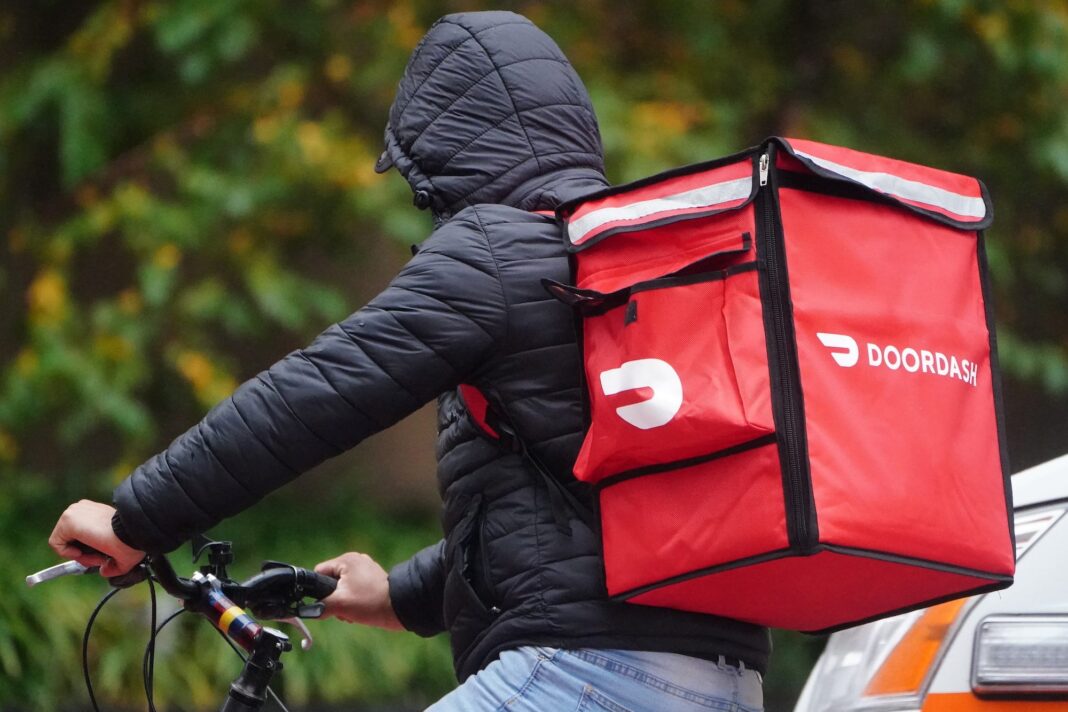Carlo Allegri/Reuters
- Inflation is still high, but it hits some industries harder than others.
- I recently looked back at my DoorDash orders and was jarred by how much prices have increased.
- Those small changes add up, but it is not always obvious how much our indulgences cost us.
While most people know that sticky inflation is still a pain for the economy even though price increases have slowed in the last few months, how much it hurts your bank account might not always be apparent, unless you know where to look.
It turns out that some of your favorite delivery apps make it easier than ever to track the impact of inflation on your spending habits. All you have to do is look at your order history.
My family of four recently ordered dinner from our favorite local taco shop in Austin, Texas, through the DoorDash app. I chose our usual items and added a tip. Like most orders from the restaurants we frequent, I ignored the cost, assuming it was consistent, and instead, just hit the order button and patiently waited for the food to arrive.
It wasn’t until a couple of days later, when going through bank statements, that the total stood out. Even though we have a fairly similar order each time, the price seemed shockingly higher than I was used to.
But how much more and what exactly pushed it so high?
I opened the app and started pulling up past orders from the same restaurant and the results were jarring.
Here is a look at DoorDash receipts from the same restaurant for the past four years. While the exact order varies, some items are consistent and highlighted.
DoorDash; Cork Gaines
I paid $5.85 for each green chili pork taco in my most recent order. It was $4.95 a year ago and has jumped about 18% in 12 months.
In the last year, a side of rice has seen its price rise 22%, from $2.90 to $3.55. It is up 37% since 2020, when that item was $2.60.
But it was the queso that hurt my heart the most. We are now paying $9.05 for an order of that lovely golden gravy. That is an increase of 19% in the last year, from $7.60, and 28% more expensive than 2020 when it was $7.05.
It is not just this restaurant. Sometimes, my teenage daughters just need McDonald’s (not me!). An order of large fries is now $3.59 at the one closest to us. That is up 20% from two years ago when they were $2.99 each.
And it’s not just the food.
While DoorDash doesn’t reveal exactly how they calculate their service fee, they say it is a minimum of $0.60 and increases based on the subtotal of your order. In our 2020 order above, the service fee was 11% of the subtotal and increased to 15% in 2021. On the most recent order, it was 19%, although we do get a discount with DashPass membership.
DoorDash; Cork Gaines
Inflation hits the cost of many things, but food prices appear to be particularly vulnerable.
In recent years, inflation in the US jumped above 3% for the first time in April 2021 and peaked above 9% in June of last year. As the Federal Reserve has fought this rise with higher interest rates, it fell to 3.1% earlier this year before climbing back up to 3.7% in October.
But those numbers are just averages and actual inflation on specific products can often vary widely.
Overall, food inflation is currently in line with the overall number of 3.7%. But in September 2022, it was at 13.5%, much higher than the 7.7% overall rate.
And more specifically, food away from home at restaurants was still 6% higher in September, year over year.
Ultimately, that extra $0.65 we are paying for the side of rice from our favorite taco shop doesn’t feel like much. But those increases add up, and only when you really look at the month-to-month and year-to-year changes do we start to realize just how much some of our indulgences are now setting our bank accounts back.
Source link









